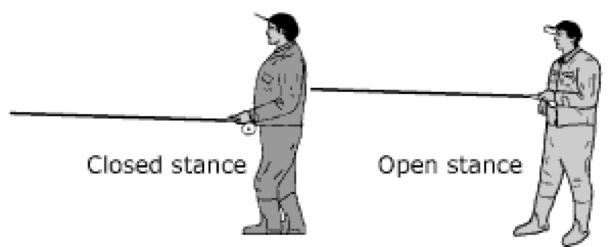
Cast Away Your Fear of Shoulder Injury!
It’s that time of year again, where the ice is melting and it is time to dig your fly rod out of the closet and go fishing. After taking a break over winter, don’t forget to take care of your shoulder and prevent injury. In a survey of 812 fly-fishing instructors conducted by Montana State University they found that 50% report shoulder pain, 39% reported elbow pain, 36% wrist pain, 5% claimed to always have pain in casting arm. Read on to see how you can prevent being a statistic!
For most fly fishermen, the shoulder takes a beating from the following:
- Weekend Warrior: Individuals who engage in demanding recreational sporting activities with minimal physical activity. This can be something such as resting all winter, then going on a week-long pack trip with 8 hours of fishing each day.
- Repetitive use of same motion such as casting a fly rod with the same grip and casting style over and over.
- Casting a fly rod that is too heavy. It has been shown that every additional foot on your fly rod increases your chances of pain by 46%.
- Poor mechanics with activity: with repetitive shoulder injuries it is important to use correct stabilizer muscles to protect your shoulder.
- Grip style, casting style, stance and addition of shooting heads and sinking weights, can also play factors.
- Finally trauma from falling while walking on unstable surfaces can also cause injury.
Some of these injuries can easily be prevented with changing your grip, casting style, or changing your type of fly rod. Others may take more time and require exercises to strengthen and protect the shoulder while improving mechanics.
- It is important to have a grip style that is comfortable. In that same study conducted by Montana State university they found that fly fisherman using the V-grip style (shown below) had significantly less pain

- Your stance is a big part in reducing potential for injury. An open stance allows you to have better balance while letting you use your whole body to cast, rather than just relying on your arms.
 |
- Varying your casting technique while avoiding using shooting and sinking weights if possible can help prevent overuse injuries
- Cross training prevents overuse of single muscles and can keep muscle groups balanced. A regular exercise plan in your off time can train all muscles to work together.
- Be aware of surroundings and know your limits. If you are going to be walking on uneven ground that may be slick wear non-slip shoes.
- Purposeful rest breaks before pain starts can be helpful. If you know that your shoulder pain begins to start after 45 minutes of fishing, take a break before your pain starts.
- Exercise and general strengthening your rotator cuff and other stabilizing muscles in your shoulder is a great way to enhance movement patterns and decrease your risk of injury. Stay tuned for an upcoming blog on shoulder-specific exercises.
If you have an injury, here’s what you can do:
- Rest is very important and is needed for full recovery.
- Talk to your doctor/physical therapist. In order to have successful shoulder rehabilitation there needs to be an understanding of the exact cause of injury and a complete and accurate diagnosis of the involved tissues.
To find out more, check out this article: http://working-well.org: http://working-well.org/articles/pdf/Fishing.pdf.
- References
- Healthy Fishing. Research View, Summer 2006. The University of Montana, Missoula, MT. http://www.umt.edu/urelations/rview/summer06/fishing.htm.
- McMullen J, Uhl TL. A Kinetic Chain Approach for Shoulder Rehabilitation. Journal of Athletic Training. 2000;35(3):329-337.
- Mitchell T. Overuse injuries in fly fishing http://working-well.org/articles/pdf/Fishing.pdf. Accessed February 1st
- Mitchell T. Repetitive Strain Disorders. http://working-well.org/articles/pdf/RSI_muscles.pdf
- Pain R, Voight M. The Role of the Scapula. 1993 Volume:18 Issue:1 Pages:386–391 DOI:10.2519/jospt.1993.18.1.386
- Repetitive Strain Injuries: The Complete Guide to Alternative Treatments and Prevention, by Timothy J. Jameson, DC, ©1998, Keats Publishing, Inc., New Canaan, CT. ISBN: 0-87983-802-7